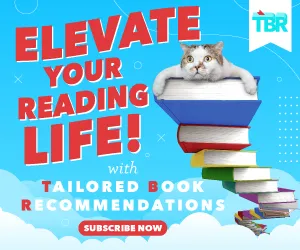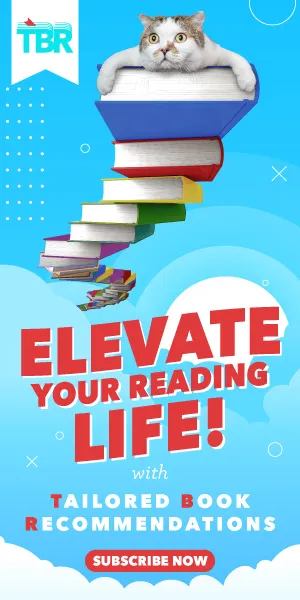
THE PERKS OF BEING A WALLFLOWER Turns 25
We accept the love we think we deserve.
One of the most memorable lines from Stephen Chbosky’s classic of young adult literature, The Perks of Being a Wallflower, represents the crux of the beloved coming-of-age story for teens. The short neon green novel—its untraditional trim size one of its physical hallmarks—follows 15-year-old Charlie as he navigates the ups and downs of being a high school freshman. He’s not only struggling to make friends, but he’s living with the trauma and the grief of losing his best friend to suicide and his aunt Helen, with whom he was close. The book is written in epistolary form, giving it a unique style that only adds to the understanding and appeal of its intended teenage audience.
“I chose the [letter] format because I thought it was the most intimate way to talk directly to the reader,” explained Chbosky in a 2012 interview. “I didn’t want it to read like a book, so much as an honest one-on-one conversation between myself and the reader or in this case, Charlie.”
The book celebrates its 25th anniversary this month. For millennials especially, The Perks of Being a Wallflower served as a crucial cultural touchstone. Many report the book helped save their lives as they wrestled with the difficulties of growing up and straddling the line between a pre-technology age and a world rapidly leaning into digital advancement.
Published by MTV Books in 1999, Perks is Chbosky’s debut novel. The story is loosely autobiographical, as elements from it—particularly those around love and self-love—emerged from the author’s own experiences following a difficult breakup.
“When I was in my mid-20s I went through a bad break up and I was in a bad place in my life. I think I needed something to give myself some hope in that moment, and Charlie really came out of that need and out of the question of why good people let themselves get treated so badly,” said Chbosky in a 2012 interview with Complex. “And at the end of writing the book, I was in a much better place.”
The Perks of Being a Wallflower quickly became MTV Books’s bestselling title. One hundred thousand copies were in print by October of 2000, just a year and a half after release. By 2012, 1.5 million copies of the book had been sold, with translations of the book available in 31 languages across many countries. At the time of the book’s publication, no bestsellers list existed to quantify sales of young adult books. That would not happen until 2012’s New York Times Young Adult Bestsellers list. The timing with the release of the film that same year helped put the title on the Children’s bestseller list in mid-2012 before it moved onto the YA list. It would continue to move on and off the list for dozens of weeks over the next several years. The Young Adult Library Services Association, a division of the American Library Association (ALA) named the book one of its popular paperback picks in 2014. The book is still in print today.
The film adaptation starring Logan Lerman as Charlie, alongside Emma Watson as Sam and Ezra Miller as Patrick, released in 2012 and was both written and directed by Chbosky. It not only garnered favorable reviews, it also released during the height of YA adaptation fever. The Hunger Games released in 2012, as did the final installment of the Twilight series, Breaking Dawn—Part 2. Perks earned $33 million worldwide against its filming budget of $13 million. But the film was over a decade in the making.
“My thing has been from day one, I’ve had, at this point, probably a hundred offers on people to buy the book and make it a movie or TV show and I’ve turned them all down because I really wanted to do it right. It was very important to me,” said Chbosky.
Since its publication, the book has been a target of book banners. Among the complaints waged against the book are its themes of homosexuality, sexual content and violence, masturbation, drug and alcohol use, suicide, and offensive language. Those are, of course, the very topics in the book which make it resonate with its young readers.
Perks received its first ban in 2002 in Fairfax, Virginia, elementary and secondary schools. A group calling themselves “Parents Against Banned Books” targeted the title along with 10 others and successfully got it removed. Montgomery County Memorial Library System in Texas saw the book challenged a year later, with the complaints emerging from a group called “Library Patrons of Texas.” Like today’s spate of book bans, the reasons presented by the group on their website were nearly identical to those lodged in Fairfax the previous year. It was removed from Massapequa High School (NY) as an optional reading text that year and then retained following a challenge at Arrowhead High School in Wisconsin. “Parents Protecting the Minds of Children” in Arkansas included it among the 54 books it sought to remove as well.
“There’s a part of the book, where Charlie—when he’s 12 years old—witnesses a date rape. If you take part of that section out of context, it seems like a very graphic account. Every time it’s taken in front of a school board, they always cut a section where Charlie says he’s going to be sick and hides his head in the pillow. It’s not supposed to be titillating at all, but these parents take it out of context to make their case better,” Chbosky told Wordriot about those first book bans. He noted that he rarely heard about challenges or bans prior to their implementation but, in the case of Arrowhead High School, was able to reach out to the board directly.
The book has been on the ALA’s top 10 most banned or challenged book lists in 2004, 2006, 2007, 2008, 2009, 2013, 2014, and 2022, and between 2000 and 2009, it was the tenth most banned book in America. In the next ten years, 2010-2019, it would become the 14th most banned title.
In 2022, it remained the fifth most challenged book, tied with John Green’s Looking for Alaska. PEN America reported that Perks was banned in 25 school districts during the 2022-2023 school year.
This notoriety for the novel, though, has never been a source of pride for Chbosky.
“I didn’t write it to be challenged. I didn’t write it to be a controversial book. I can’t really take it as a point of pride because it was banned someplace. The first time it happened, it was… well, exciting isn’t the right word, but I thought, ‘Wow, it’s getting all this attention.’ And I did think it was kind of exciting, that it was being talked about that way. But after a time, you start to realize that the argument is always the same. I no longer find the argument exciting, and it’s certainly not a matter of pride,” he said.
Chbosky did not release his next novel until 2019. The book, Imaginary Friend, is an adult horror title; it immediately hit the bestseller list upon publication. In between books, he has been actively involved in the entertainment and literary industries. He wrote the film adaptation of Rent in 2005, wrote and produced two dozen episodes for the television series Jericho, and wrote the screenplay both for the film adaptation of 2017’s Beauty and the Beast and Wonder. In 2021, he worked on the film adaptation of Dear Evan Hansen.
On the 25th anniversary of Perks, Chbosky shared on social media that he was not only fortunate enough to publish the book but also that it was thanks to readers’ passion for the book that it remains popular and beloved.
That was met with dozens of readers responding with how important the book was to them, as well as to young readers everywhere—even those whose parents may have picked up the book when they themselves were teenagers:
- “the book that made me decide to be a writer! and i did it!”
- “The book that made me a reader!”
- “Still one of my favorite books ever. I’ll never forget the first time I read it.”
- “I literally am who I am because of this story. Thank you for writing it and releasing it”
- “I was literally 1 when this book came out, still 13 years later when I read it, it changed me”
- “Literally saved my life <3”
While there is no word on a future book for Chbosky yet, the legacy and insight offered by him and The Perks of Being a Wallflower is undeniable.
“If we didn’t talk about sex and we didn’t talk about drugs, and all these other things that impact teenagers’ lives, literature would still reach teenagers. But the ones having problems in these areas would be totally left in the dark, and would unfortunately be more ignorant,” said Chbosky.
“The more you talk about it, the more you take away its power and its mystery, and people can make much more informed and mature decisions about these things.”













